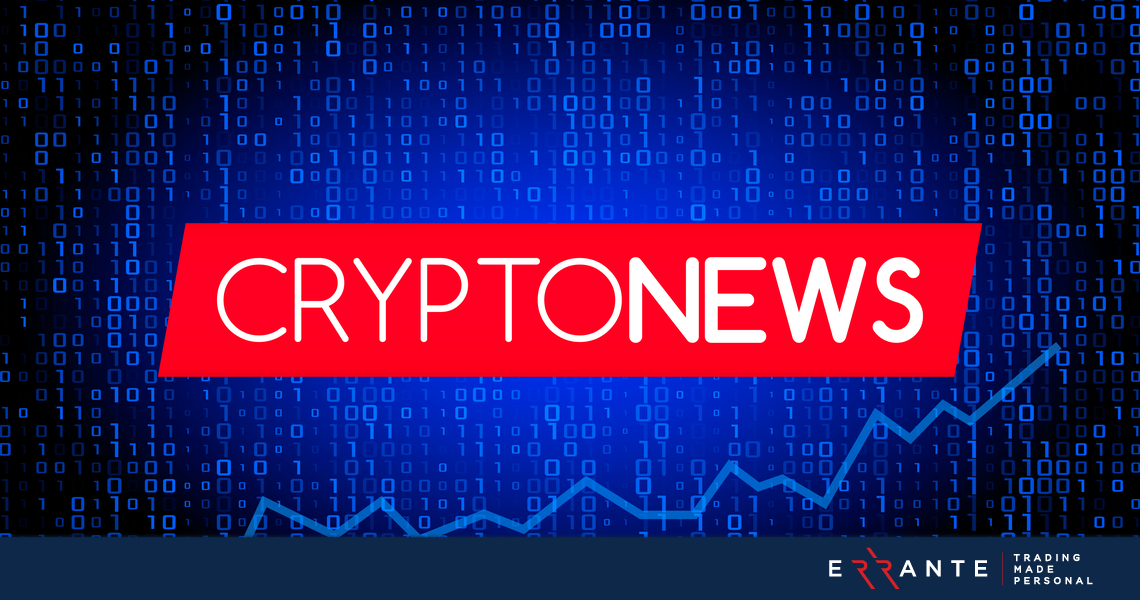Newest Patterns and Updates in copyright News You Can Not Miss
Exploring the Influence of Regulative Modifications and Technical Innovations on Today's Digital Currencies Headings
The crossway of regulative adjustments and technical developments is essentially altering the landscape of digital currencies, triggering a re-evaluation of their duty in the global economy. Regulative bodies, such as the SEC and CFTC, are proactively affecting how digital possessions are categorized, while brand-new innovations are improving purchase effectiveness and safety and security actions. This twin evolution elevates crucial concerns regarding the effects for market characteristics and capitalist confidence. As we discover these developments, the inquiry continues to be: just how will these variables form the future trajectory of digital money in a progressively interconnected world?
Current Regulatory Landscape
In the wake of rapid developments in digital currencies, the present regulative landscape is advancing to resolve the intricacies and obstacles posed by these developments. Governments and regulative bodies worldwide are grappling with how to effectively manage this expanding market, which frequently transcends national boundaries.
Trick governing techniques include the establishment of structures that specify digital currencies, ensuring customer defense and stopping illicit activities such as cash laundering and fraudulence. In the United States, firms like the Stocks and Exchange Payment (SEC) and the Product Futures Trading Compensation (CFTC) are actively taking part in discussions to make clear the category of different digital assets and their governing ramifications.
Likewise, the European Union is progressing its Markets in copyright-Assets (MiCA) guideline, which aims to develop a cohesive regulatory setting across participant states. Countries like China have actually chosen for stricter procedures, including straight-out bans on particular copyright tasks.
As this regulatory landscape remains to develop, it will certainly be vital for stakeholders, including organizations and consumers, to remain educated and adjust to the altering setting to reduce threats while utilizing on opportunities within the electronic currency ball.
Key Technological Innovations
Many technological advancements are reshaping the landscape of electronic money, substantially boosting their performance and safety. Among one of the most critical innovations is the development of blockchain innovation, which gives a decentralized ledger that guarantees openness and immutability of transactions. copyright news. This technology not just minimizes the risk of scams yet also permits for real-time transaction verification, cultivating user trust fund
Additionally, the introduction of clever contracts has actually changed just how contracts are implemented within electronic currency communities. These self-executing contracts promote automated transactions, getting rid of intermediaries and minimizing expenses linked with typical agreement enforcement. Furthermore, developments in cryptographic methods improve the safety of digital budgets, securing individuals' possessions from prospective cyber risks.
One more noteworthy innovation is the integration of fabricated knowledge in purchase surveillance and fraudulence discovery, allowing platforms to determine questionable activities immediately. In addition, the intro of Layer 2 scaling services, such as the Lightning Network, addresses scalability issues, enabling faster and less expensive purchases on networks like Bitcoin.

Influence On Market Dynamics
Technical technologies in electronic currencies have not only improved performance and security however have likewise substantially transformed market characteristics. The intro of blockchain modern technology has actually raised openness and reduced transaction costs, resulting in greater effectiveness in trading and investment. This has encouraged a more diverse series of participants, from retail capitalists to institutional gamers, to involve with electronic money, consequently magnifying market liquidity.
Additionally, the introduction of decentralized financing (DeFi) systems has actually interrupted conventional monetary systems, offering users with alternative avenues for lending, loaning, and trading. This change has fostered a competitive setting where typical economic organizations are obliged to innovate or take the chance of obsolescence (copyright news). With the surge of stablecoins, which use price security among volatility, traders can now execute purchases with minimized danger, additional influencing market behavior
Additionally, the integration of man-made intelligence and artificial intelligence in trading methods enables extra innovative market analysis and anticipating modeling. As an outcome, financiers are better outfitted to reply to market variations, producing a more vibrant trading environment. Collectively, these innovations are improving the landscape of these details digital money, resulting in a more interconnected, affordable, and efficient market.

International Point Of Views on Law
Regulatory techniques to digital currencies vary significantly across the world, frequently showing varying economic priorities, cultural attitudes towards innovation, and degrees of technical fostering. In the USA, regulative bodies such as the SEC and CFTC come to grips with defining the legal status of cryptocurrencies, concentrating on capitalist defense and market honesty. At the same time, the European Union is progressing thorough governing structures like the marketplaces in copyright-Assets (MiCA) proposal, aiming to create a unified approach that fosters innovation while ensuring customer safety and security.
On the other hand, nations like China have actually adopted a straight-out restriction on cryptocurrencies, prioritizing financial control and monetary stability over innovation. On the other hand, nations such as El Salvador have actually accepted Bitcoin as lawful tender, showcasing a strong commitment to economic inclusion and financial modernization.
Developing nations commonly find themselves browsing a complex landscape, stabilizing the requirement for regulation with the possible benefits of electronic currencies in driving financial growth. Generally, the worldwide governing find more information atmosphere continues to be fragmented, with continuous discussions and adjustments as federal governments seek to strike an equilibrium in between promoting technology and mitigating risks linked with digital currencies. This vibrant landscape underscores the requirement for ongoing worldwide cooperation and dialogue amongst regulators.
Future Patterns in Digital Currencies
As governing frameworks advance, the landscape of digital money is positioned for considerable makeover. Arising fads suggest a merging of regulatory clearness and technical development, which will certainly form the future of digital money. Reserve Bank Digital Currencies (CBDCs) are expected to obtain traction as governments discover their possible to enhance financial plan performance and financial addition.
All at once, decentralized financing (DeFi) systems are anticipated to challenge conventional financial systems, providing ingenious financial services that run without intermediaries. This change can bring about a re-evaluation of existing policies to fit the one-of-a-kind qualities of DeFi while making sure customer security and systemic stability.
Additionally, the combination of expert system and maker discovering in copyright trading and threat evaluation will redefine investment techniques and market dynamics. As digital money come to be significantly conventional, concerns such as cybersecurity dangers and regulative conformity will necessitate durable remedies.
Last but not least, public understanding and adoption will certainly play an important role in determining the trajectory of digital money. Enhanced understanding and education concerning the advantages and dangers related to electronic currencies will drive acceptance, eventually influencing the regulatory landscape and market advancements in the years to come.
Final Thought
